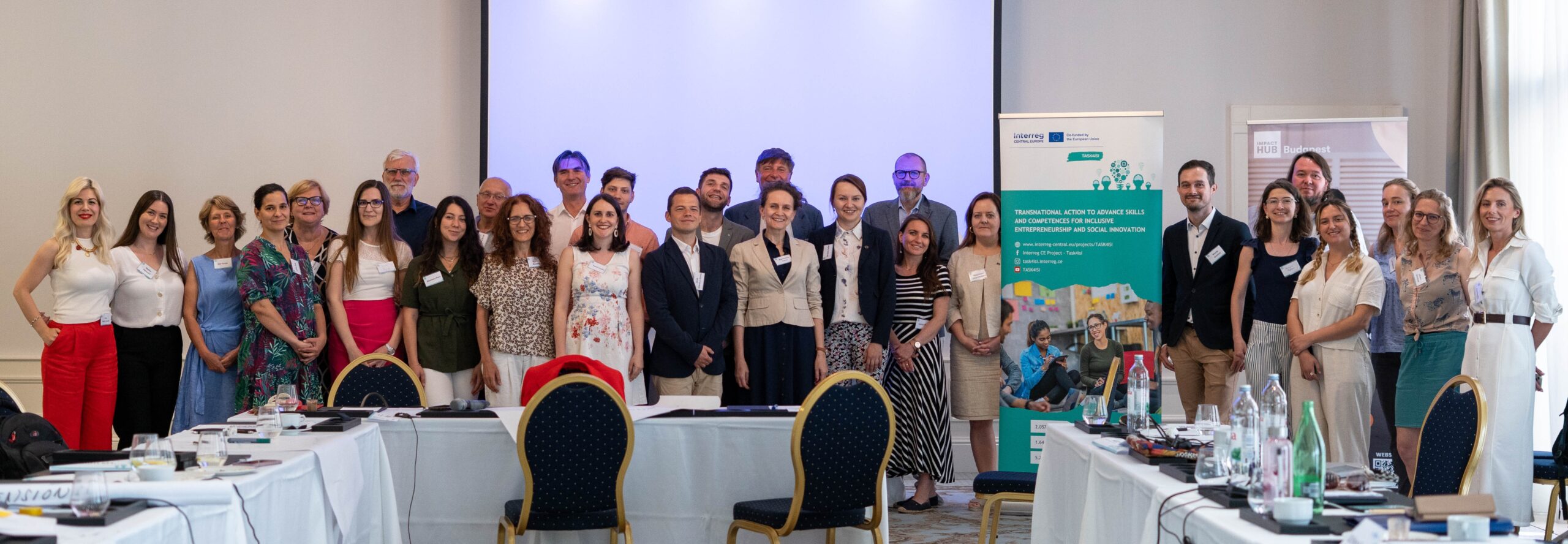On June 5 and 6, 2025, the coastal city of Split, Croatia, welcomed TASK4ISI project partners, stakeholders and local entrepreneurs for an engaging two-day programme filled with strategic meetings, inspiring field visits and meaningful conversations. Organised by CEDRA Split and PI RERA S.D., the event reflected the project’s mission to foster inclusive entrepreneurship through real connections and practical learning.
Strategy and collaboration
The first day took place at Hotel Park, where the 3rd Steering Committee Meeting opened with a review of project progress, key deliverables and upcoming evaluation milestones. Partners discussed priorities for the next period, focusing on sustainability and regional relevance.
This was followed by the 3rd Transnational ISIHUB (TNISIHUB) meeting. Each regional ISIHUB representative presented a snapshot of their recent achievements, while group activities encouraged discussion on incubation models, local ecosystem needs and long-term collaboration. The meeting ended with a collective reflection on how to strengthen the ISIHUB network moving forward.
Later that day, the project was presented to local media and decision-makers during a press conference. This was an important opportunity to highlight the goals of TASK4ISI, especially the work being done to support underrepresented groups. The day concluded with a storytelling walk through Split’s old town and a joint dinner with a view of the sea, offering space for connection in a relaxed and welcoming setting.
Learning from the field
The second day shifted focus from planning to practice. The morning began at Technology Park Split, where local experts introduced several successful entrepreneurial initiatives, including women-led businesses and public support schemes for startups. Participants gained valuable insights into how inclusive support systems function in the local context.
The group then visited two outstanding examples of social entrepreneurship. At the FAVA concept store in Kaštela, elementary school students shared how they manage a small greenhouse and produce natural products based on herbs. This initiative combines sustainability, education and entrepreneurship in a truly hands-on way.
The visit continued at Restaurant Leptir in Trogir, a social enterprise run by an association of persons with disabilities. The restaurant not only provides employment opportunities but also fosters community awareness and inclusion through its work. Both visits left a strong impression on participants, showcasing what inclusive entrepreneurship can look like on the ground.
The study visit in Split served as a reminder that inclusive entrepreneurship is not just a policy goal but something already happening in local communities across Europe. Through thoughtful planning and hands-on experiences, the two days in Split strengthened the partnerships at the heart of TASK4ISI and opened up new perspectives on how to support “missing entrepreneurs.” The project continues to grow, powered by collaboration, local insight and shared commitment.
This publication reflects the views of the author(s) only. The programme authorities are not liable for any use that may be made of the information contained herein.
